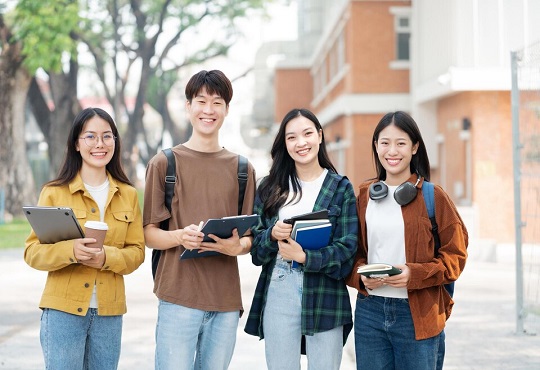Trump Welcomes Chinese Students Weeks After Visa Crackdown

- Trump announces deal allowing Chinese students in U.S.
- Follows earlier directive to revoke Chinese student visas.
- Many Chinese students now eye UK and Australia options.
Only weeks after US Secretary of State Marco Rubio revealed that the State Department is collaborating with the Department of Homeland Security to "aggressively" cancel visas for Chinese students, especially those connected to the Chinese Communist Party or studying in sensitive fields, Trump stated he has reached an agreement with China to permit students to keep “using our colleges and universities.”
“Our deal with China is done, subject to final approval with President Xi and me. Full magnets, and any necessary rare earths, will be supplied, upfront, by China,” read the post by Trump on his social media platform, Truth Social.
“Likewise, we will provide to China what was agreed to, including Chinese students using our colleges and universities (which has always been good with me!). We are getting a total of 55% tariffs, China is getting 10%. Relationship is excellent! Thank you for your attention to this matter!”
It is uncertain if Rubio’s directive will remain in place, but Trump’s present position regarding Chinese students in the US comes after “productive talks” between the US and China, aimed at reducing export limitations and providing rare earth elements.
The President's announcement is expected to provide significant comfort for China, which has condemned the US administration for its intentions to limit Chinese student visas and its wider initiatives to restrict the nation's access to semiconductors and other technologies linked to artificial intelligence.
Despite being one of the largest international student populations in the US with approximately 277,000 members, second only to India, the escalating conflict between the US and China, coupled with persistent security issues, has significantly impacted policies regarding Chinese students and researchers in American universities.
A Chinese researcher planned to spend a year at the University of Michigan for a study but was recently detained at Detroit airport on accusations of trying to smuggle biological substances, particularly specific types of worms, needing a government permit.
While many universities, particularly in California, have stated that Chinese students are essential and significantly contribute to research and public service, Beijing has issued a warning advising its students to be careful when contemplating studying in specific US states.
In March of this year, Ohio's reform bill for higher education restricted public universities from receiving donations from China and required heightened security assessments for new collaborations with Chinese institutions, similar to recent actions taken in Texas and Florida, where public colleges are prohibited from partnering with or obtaining funding from Chinese organizations.
Also Read: US Starts Student Visa Process; Hyderabad Experts Share Tips
The perceived unfriendliness in the US has already led numerous Chinese students to seek other locations, such as the UK and Australia – a trend that started to surface as early as the previous year.
“And while we can’t absorb every single student suddenly ejected from the Ivy League dream, we can offer something they increasingly want: stability, safety, and an education that still commands global respect,” Susan Fang, co-founder and CEO of OxBridge Holdings, who helps international students find education opportunities in the UK, previously told The PIE News.
Even with a more cautious approach regarding international students, obstacles persist as the US reopens study visa interviews at its embassies and consulates globally, now incorporating stricter screening processes that involve social media activities and wider internet presence evaluations.

